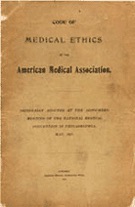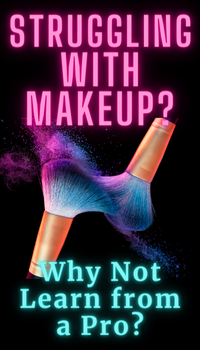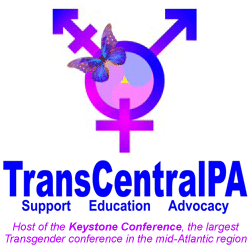Should Science Explore Transgender Causation?
I get concerned when I hear transgender people or providers for transgender people attack the idea that we should not use science to understand how we got here and how we should be treated. I have to admit, if it is not already obvious, that this has been a consuming passion for me, since at the age of 5, I realized that I was a girl, not a boy. I got into this field relying on science. I was willing to accept negative outcomes—that I might be a sexual pervert as the encyclopedia said when I read it as a child and whether I was responsible for my strange behavior and should be ashamed. I am still a science believer. Still, this is the time of year to reconsider if one is on the right course and perform any midcourse corrections needed.
 As I have pointed out in previous blogs there are plenty of scientific studies which show differences between transgender and non-transgender people in genetics, anatomy, brain scans and neuroanatomy, and seemingly unrelated behaviors such as handedness. There is concern that the science might be reduced to practice in technologies that could be used in categorizing people as transgender or not. Some people are concerned that science which reveals such differences will be used for a “diagnosis” of being transgender thus determining whether medical treatment is allowed. They are also concerned about eugenics which might involve abortion of those fetuses showing signs of being transgender.
As I have pointed out in previous blogs there are plenty of scientific studies which show differences between transgender and non-transgender people in genetics, anatomy, brain scans and neuroanatomy, and seemingly unrelated behaviors such as handedness. There is concern that the science might be reduced to practice in technologies that could be used in categorizing people as transgender or not. Some people are concerned that science which reveals such differences will be used for a “diagnosis” of being transgender thus determining whether medical treatment is allowed. They are also concerned about eugenics which might involve abortion of those fetuses showing signs of being transgender.
Clinicians might use the word “diagnosis” instead of categorization but, since being transgender is not a disorder or disease, the word diagnosis does not really apply. Clinicians have been taught to think in the medical model wherein “diagnosis” must be made to decide how to treat an underlying disorder or disease, and it is hard for them to break out of this mode of thought. Clinicians are taught to provide evidence-based treatment which includes treatment of transgender people. Scientific facts are important in providing for transgender people, although there are many gaps. U.S. big science primarily supports scientific investigation of diseases to find cures. Our science is not aimed at investigation of phenomena that are important for characterizing and understanding the human condition.
Since the 18th Century enlightenment and the accompanying formulation of the scientific method, we have learned a lot about ourselves and our place in the world. Science has helped us improve our standard of living as well as reduce and ameliorate disease. We now know that there are several factors that determine human behavior starting with genetics, epigenetics, and early learning. Transgender science makes science more relevant to the public because it provides realization of the biological nature of sex and gender. Being transgender reveals that sex and gender are not binary and are quite diverse. We are the embodiment of their dissociation. And the subject of intersex, differences in sexual development, are frequently involved in the discussion of being transgender, despite what culture teaches about these categories being strictly binary.
The danger of misusing science is there all right. Most powerful science and technologies are dangerous if not used ethically and the genetic and biological sciences are becoming increasingly more powerful. But adequate safeguards in their use are already in place. Providers are trained to base transgender categorization on multiple factors including history, declarations of being transgender and presentation. They should understand the science behind any technology and understand its limitations. They should weigh the evidence as they see fit based on their knowledge of science. That is the essence of clinical judgement. Using such evidence requires knowledge about being transgender and good ethics. Gatekeeping, under current WPATH guidelines has been greatly reduced. HT can now be obtained with declaration of informed consent and without a mental health permission slip. The real life test has become the real life experience with the judgement made by the participant as to its success. Transgender genital plastic surgeries require mental health certification only that the person is not psychotic and does not have underlying mental problems that will interfere with the success of the operation. Other surgeries do not require gatekeeping letter at all by guidelines and practice. Unethical eugenics is generally prevented through hospital and government ethics panels. It is doubtful that being transgender is regarded as a threat to a child’s immediate health, the way such genetic problems as Tay-Sachs are in which abortion may be indicated to reduce suffering.
It is urgent that we continue and enlarge our transgender science effort because there are authoritarian regimes that would like nothing more than to develop scientific methods to classify transgender people in order to control or eliminate them. This is not a new phenomenon for authoritarian regimes. The East German endocrinologists in the ’50s and ’60s tried to find a way to eliminate transgender (and gay) people. They thought that they could do this by administration of testosterone to pregnant mothers carrying male children and by administration of testosterone blockers to those carrying female children. At the time, amniocentesis and ultrasound sexing of fetuses had not yet been invented, so the urge to try these hormone manipulations was reduced. We still have a hangover from this period with claims that prenatal testosterone levels determine gender predisposition but these claims are easily be refuted based on scientific evidence.
Today, the two major authoritarian regimes most hostile to transgender people are China and Russia. In Russia, the regime is supported in their hostility by the prevailing religion. Both of these countries have the resources and know-how to conduct genetic and epigenetic research that might lead to classification and elimination of transgender people. Witness the gene alteration experiments already carried out in China on fetuses. In 2018 a Chinese scientist, He Jiankui of Southern University of Science and Technology in Shenzhen used the CRISPR genetic engineering tool ostensibly to modify the genes of unborn children to fend off the virus that causes HIV. These experiments were labeled as unethical by the international medical ethicist community but the Chinese government looked the other way. Historically, the U.S. stood on the sidelines while CRISPR was developed in research organizations in Japan, the Netherlands and Spain to edit segments of DNA. Greater understanding of gene editing through research in the U.S. might have prevented this tragedy, since we are the ones best in position to advocate for international ethics.
Ethics does not operate in a vacuum. Ethicists must have the scientific information to understand the details of any proposed activity. The U.S. is now pursuing genetic research including CRISPR for ethical medical purposes and we must not lose touch with its development if only to support ethical judgements.
One or both of the two authoritarian regimes mentioned above might very well decide to use its genetics and epigenetics capability to try make transgender people disappear in their countries by developing the means to identify transgender fetuses or even by attempting gene therapy. This would require identification of the genes involved in gender behavior predisposition which they are fully capable of achieving. The U.S. has discouraged much of such research because of politics. The NIH has turned down proposals to perform full-genome, large-scale genetic analyses of being transgender. The samples for such studies have already been collected and the cost of full genome scans has plummeted but we are still without answers as to exactly which genes are responsible for being transgender. Russia and China could easily perform these experiments, leaving the U.S. and international ethicists without the information they need. It is vital to know about the basis of genetic gender behavior predisposition in order to keep these regimes in check through ethics advocacy efforts.
 Further weakening advocacy for transgender science is the current U.S. government denial of transgender existence. Being transgender is mischaracterized and vilified for political purposes and used as a wedge issue. Accurate transgender science has been withdrawn from government websites and documents. The clear intent is to make transgender people disappear because we contradict cultural and religious orthodoxy.
Further weakening advocacy for transgender science is the current U.S. government denial of transgender existence. Being transgender is mischaracterized and vilified for political purposes and used as a wedge issue. Accurate transgender science has been withdrawn from government websites and documents. The clear intent is to make transgender people disappear because we contradict cultural and religious orthodoxy.
Those providers associated with academic organizations find themselves in a precarious situation. In order to understand being transgender and to treat their patients, they must follow an evidence-based practice which relies on science. On the other hand, Postmodernist thinking on campus denies the validity of science and is characterized as an invention of the “oppressors.” The Postmodernists view a human being as a tabula rasa, a blank slate upon which culture can write and ignore the fact that we are born with biological predispositions which are shaped by genetics and epigenetics. For the Postmodernists there is no such thing as objective scientific fact, only politics. They do not support research in science and technologies to look for differences between transgender and non-transgender people which might reveal important information about the transgender and human condition. Scientists and providers who believe in science walk a tightrope and must be careful what they say, lest their academic careers be ruined. Those who do not believe in science are hypocritical and may not be doing right by their patients.
We have to know why we are the way we are and how to navigate this life. We also need to have a bodyguard of science to defend ourselves and to have the knowledge to advocate for ethical behavior of societies.
So far, the science has given us some of the answers I sought as a child. It tells me that transgender people are not sexual perverts; only 1-2% of male children are girls; and I am not responsible for becoming transgender—I could not be responsible for the genes I inherited or for the binary, cisgender, rigid culture into which I was born.
I have always relied on science to give me the answers I seek about life and being transgender and I see no reason to execute midcourse changes. Steady as she goes!
Like to make a comment? Login here and use the comment area below.
Category: Transgender Body & Soul












